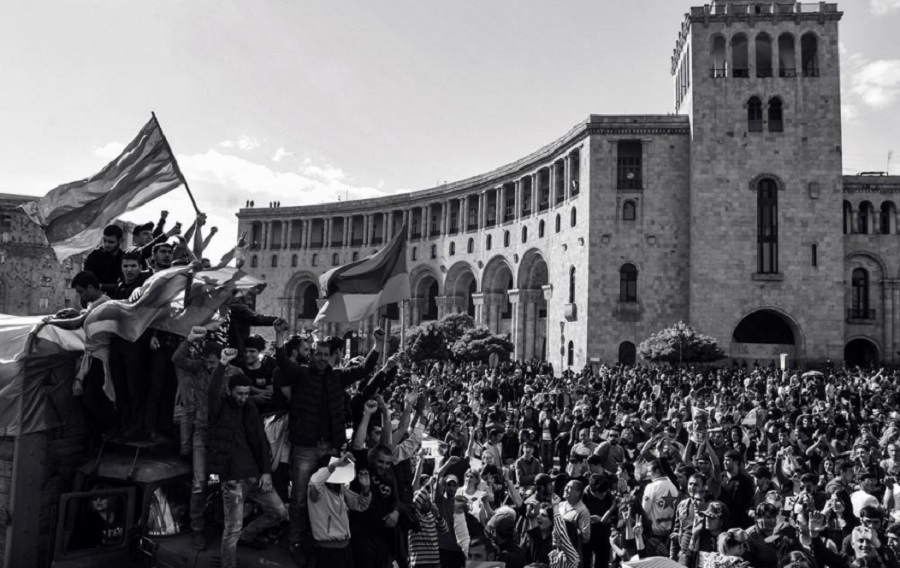«ACNIS». For nearly a quarter of a century, political struggle in Armenia has been predominantly perceived as a means of achieving regime change. The terms “political struggle” and “regime change” have become almost synonymous in the public consciousness. People view political struggle as nothing more than a competition for authority—a race to claim the “chair” of power. In other words, the prevailing mindset suggests that if there is political struggle, it must solely aim to replace the current leadership: “They want to take power from Pashinyan.” This conflation of concepts reflects a distorted understanding of political struggle.
What does political struggle truly mean? At its core, it is a contest of forward-thinking future oriented projects—a battle of thought, ideas, imagination, and political will. Power is not the monopoly of any individual or group; it belongs to the people. Through elections, the people delegate power to the candidate whose vision for the future aligns most closely with their values and perspectives. They entrust their vote to the person they perceive as demonstrating the greatest political will and effort, as evidenced by their past achievements and experience.
Anyone who deviates from the people’s mandate and promises—or worse, leads the country toward upheaval, criminal transactions, or loss—must step aside. This applies to Pashinyan or any other leader. If they fail to do so voluntarily, the people who elected them have the right to demand their resignation. Armenia’s moral decline arguably began in 2018 when, during the election campaign, an oath-breaking freedom fighter openly declared that “the victory of the Velvet Revolution in Armenia was more important than the Artsakh liberation war.” This statement, reportedly made in Pashinyan’s presence and possibly even under his direction, marked a troubling turning point.
An immoral and criminal government—one that lacks a vision for the future—inevitably fosters an equally immoral society. Consider Syria’s Bashar al-Assad, whose regime descended into brutality as corruption, lack of vision, and immorality eroded its foundation. Incidentally, the word “corruptibility” literally means “rust,” and Armenia’s current government, like the one before it, is undeniably rusted. This “rust” has corroded intellectual discourse, rendering it nearly impossible to envision a future. Ultimately, regime change should be the product of profound thought, not the other way around.
Read also
History often shows that movements fulfilling their immediate mission can find themselves adrift. Over the last 25 years in Armenia, the central idea of most political movements has been regime change. Sigmund Freud’s psychoanalytic theory on “recurring dreams” suggests that one must confront and realize these dreams in waking life to move past them. Regime change occurred in 2018, yet the reality remains unchanged: we are in a mental vacuum.
Let us reflect on the events of April-May 2018, when one of the main slogans was the construction of “New Armenia.” Have we built it? Are we living in New Armenia? Clearly not. We are still in Old Armenia, now seemingly in its final phase. This is evident from the emptiness pervading political debates—or rather, the absence of genuine debate altogether. This mental void and disorientation suggest that we are not witnessing the birth of New Armenia, but rather the demise of Old Armenia.
The Armenian Center for National and International Studies


















































